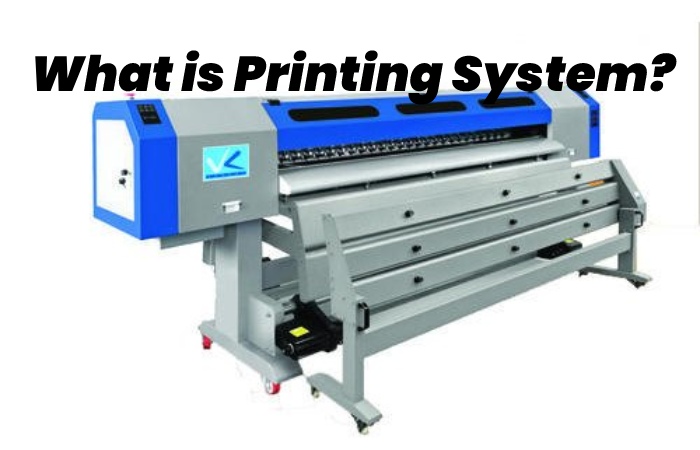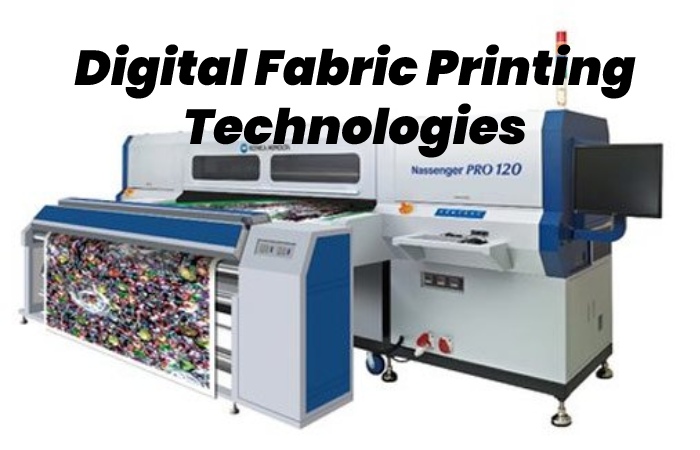Digital Fabric Printing Technology – During its participation in the digital fashion week, Epson presents its latest portfolio of robust printers with state-of-the-art technology designed to bring innovation and brilliant colors to the textile and fashion sector.
Table of Contents
What is Digital Fabric Printing Technology?
Surely you have noticed that there are prints that stand out for their realism, for the wide range of tones we see in their designs. These are digital fabrics.
They are 100% cotton fabrics created in a different way than the one that was used until recently, which was to intertwine threads of different colours, now they are designed safe with new printing technology that helps us improve the quality of our products since they have a higher rate, its texture is smoother.
The procedure implies the application of the ink directly on the fabric, thus being a process similar to screen printing. Although the entire process is digital, said printing is done exclusively on the white cloth, not on other tones; however, The quality of this printing allows dark colors to adhere perfectly to the white surface. Without a doubt, it offers many more creative options in terms of combinations,
As for its care, keep in mind:
- Wash at a temperature below 40°C
- Do not use chlorine
- They must be dried in the shade or if it is machine dried with low temperature
- To iron, use a temperature below 110°C
- They can be dry cleaned.
What is Printing System?

The particular characteristics of each job, quality, type of support, final destination, and the number of copies required require the most appropriate printing system, making it necessary for us to be knowledgeable about the operation and applications of the different printing systems. And also, We can differentiate between the other systems considering the various elements involved in the printing process.
Printer form. A vehicle that transfers the inked image to the final support. And also, Depending on the shape, embossed, flat, or hollow, this is how the printing system will be characterized.
Ink. Each system acts under specific inks; the ink’s greater fluidity or thickness determines the process’s speed. Oilier inks allow more solid pigments, which provide excellent resistance to external agents (light, water, acids, etc.). And also, Still, they offer less drawing, a property of the inks that conditions the passage from the printing form to the support.
Support. The types of support characterizes each system it can act: paper, textile, ceramic, plastic, cardboard, metal, and glass. We can also differentiate between direct and indirect printing.
Direct. The printing form transfers the image directly onto the support.
Hint. The printing form transfers the image to an intermediate element, which passes to the support.
Tradition Digital Fabric Printing Technology System
Typography
Typography is a printing system in which the elements to print are in high relief in the printing form. And also, It is also a direct printing system since the image transmits directly from the printing form to the substrate.
There are several types of machines, depending on the form of contact between the substrate and the printing form:
flat against flat (the so-called Minerva’s), flat-cylindrical (the shape is flat, and the substrate rotates on a cylinder and comes into contact with the printing form), and cylindrical cylinder against the cylinder.
Digital Fabric Printing Technology

1. Fields of Application
Digital printing has been steadily joining the graphic sector, although there has been reluctance at first, as happens with new proposals in any field.
Digital printing technologies made their way. And also, first utilizing simple variable data printing and positioning tests and carrying out unprofitable short runs to carry out with conventional systems, to later complement other aspects of graphic and digital production. And also, They were even assuming new market niches.
Now nobody discusses incorporating a digital printing system in a graphic company, in some cases as a contribution of added value to services, in others as mere survival.
2. Gigantography
Gigography refers to printing that allows obtaining a printed product of large dimensions, expressed in meters high by meters wide, and generally has advertising or similar purposes and carry out exclusively with a digital printing system.
We can consider gigography as a section within a broader concept that would large format printing.
3. Printing on Demand (Print on Demand – POD)
Printing on-demand or on-demand as it is also known or, in English Print on demand, POD, consists of printing on the market quickly, efficiently and with the number of desire. And also, This is undoubtedly one of the offers of this system, which, together with the rest of its contributions, creates unbeatable possibilities for other systems.
Dark Fabric Printing of Word Press
Dark fabric printing is the last outstanding achievement surpassed by digital fabric printing technology. By applying white ink as a base. And also, the colors show up much more brilliantly, achieving a brighter, more beautiful, long-lasting result. And also, This optimal result can only guarantees with a previous pre-treatment layer.
There are three digital textile printing techniques to apply the pre-treatment:
1. Spray Gun
Broadcast, hand spray, or power spray guns are among the most popular pre-treatment application techniques. It’s fast to apply, much more uniform over a large work area, the application optimises, less pretreatment use and fabulous prints achieve.
This is the best pre-treatment application technique if you want to print large areas of t-shirts and do it fast. The disadvantage is that if you want to make small prints in particular places, for example (in the pocket of the shirt), it is better to use the roller technique.
2. Roller Technique
The paint roller is the second use method in digital textile printing, and it is low cost and often the most effective.
Conclusion
Digital fabric printing technology is the present and future of fashion, and Epson is a pioneer in this trend. Thanks to the technology offered by the Sure Color F-Series equipment. And also, It is now revolutionizing the fashion industry, giving designers unique ways to produce their fabrics with the tools they need to experiment and explore.
This equipment provides printing with low production costs, at a large volume and that allows printing at an industrial level. And also, If arrives at Colombiamoda as a company committed to haute couture and casual fashion. In contrast, allowing them to build their collections faster and more efficiently.
Also Read: Sprint
